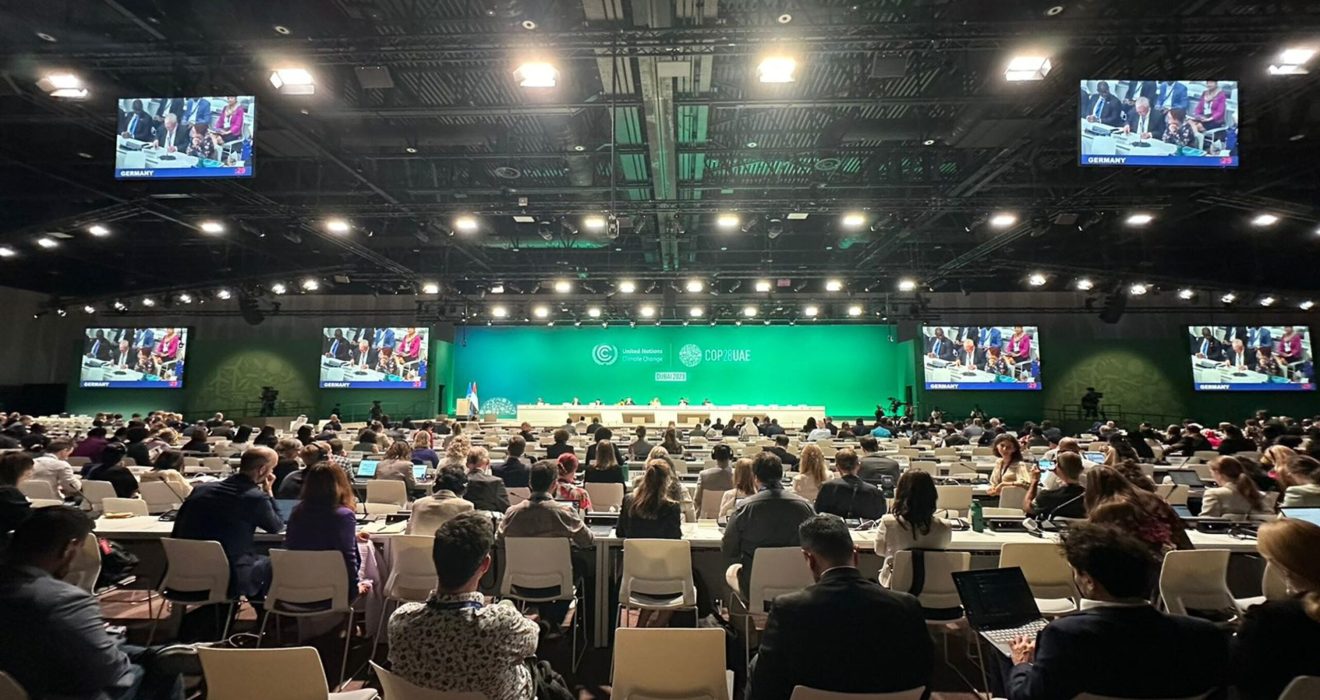The intersection of Urbanization and Climate Change assumed a pivotal role at COP28 with the collaborative efforts of UN-Habitat, the COP28 Presidency, and the UN Climate Change High Level Champions in hosting the second Ministerial Meeting. This significant event, drawing over 1000 participants, comprised 40 Ministers and over 200 subnational leaders. The primary objective was to foster alignment between local and national strategies, unlocking essential climate finance to support localized initiatives. Recognizing the urgency of addressing climate challenges, this gathering served as a platform for high-level discussions, emphasizing the critical role of local and regional entities in the global pursuit of sustainable urbanization and effective climate action.
Key Goals and Objectives of the Ministerial Meeting
The focal point of the Ministerial Meeting, as articulated by UN-Habitat, was to catalyze substantive discussions regarding the synchronization of local and national strategies, coupled with the effective mobilization of climate finance to support localized initiatives. With a dedicated emphasis on collaborative efforts, the event aimed to convene subnational leaders, ministers, and diverse stakeholders. The overarching objective was to collectively address the pressing need for coordinated action in response to the challenges posed by urbanization and climate change. By bringing together key decision-makers and influencers, the meeting provided a platform to explore innovative solutions and frameworks that could contribute to a more sustainable, resilient, and climate-friendly urban landscape. The urgency of these discussions underscored the critical role of local and national collaboration in achieving meaningful progress towards climate goals.
Notable Participants and Contributions
At the Ministerial Meeting, the active engagement of notable leaders like George Heyman, the Minister of Environment and Climate Change Strategy of British Columbia, and KatjaDörner, the Mayor of the City of Bonn, alongside other distinguished figures, marked a pivotal moment. Their substantial contributions underscored the paramount importance of cultivating collaboration at the local and regional levels within the collective endeavor to combat climate change. These influential participants shared valuable insights, experiences, and perspectives, shedding light on the critical role played by subnational entities in implementing effective climate strategies. Through their emphasis on the necessity of cooperation at local and regional scales, these leaders not only deepened the understanding of the interconnected nature of climate challenges but also reinforced the shared responsibility in developing and implementing sustainable solutions to address the environmental impacts of urbanization.
Urban Ministerial as a Catalyst for Multilevel Action
Gino Van Begin, Secretary General of ICLEI, commended the UN-Habitat and COP28 Presidency for convening a diverse representation of national and local leaders. He highlighted the need for the UNFCCC to make such Ministerial Meetings a mandated fixture at every COP, ensuring sustained productive exchanges and collaboration in the years to come.
Local Governments’ Role and Active Participation
Abigail Binay, Mayor of Makati and COP28 Local Climate Action Summit Co-Chair, underscored the opportunity for inclusive dialogue that positions local governments as active participants in climate action, rather than mere beneficiaries. The collaboration between the COP28 Presidency and the LGMA Constituency was lauded for its bold leadership and inclusive approach.
Joint Outcomes and Commitments
The Ministerial Meeting produced a significant joint outcome statement that harmonized with the Local Climate Action Summit’s objectives. This statement called upon Parties to incorporate multilevel cooperation into their strategies for achieving the Paris Agreement. Highlighting the importance of mechanisms like CHAMP and local stocktakes, the statement underscored their role in propelling advancements toward climate goals. By advocating for collaborative approaches at different governance levels, the participants sought to enhance the overall effectiveness of climate action initiatives. The expectation is that these impactful outcomes will integrate seamlessly into the negotiated results of COP28, influencing and shaping the broader discussions and agreements at the global climate forum. This alignment reflects a commitment to fostering inclusive, cooperative measures that address the complex challenges of climate change through concerted efforts on both local and international fronts.
Reflections on the Ministerial Meeting and Future Commitments
YunusArikan, Director of Global Advocacy for ICLEI, reflected on the significance of the Urban Ministerial as an event anchoring Multilevel Action Day at COP28. He emphasized the need to build on advocacy achievements and expressed the commitment to support the design and delivery of future Urban Ministerials. The momentum gained from the Ministerial was seen as crucial for strengthening commitments to multilevel initiatives such as CHAMP and SURGe.
Conclusion
In conclusion, the second Ministerial Meeting on Urbanization and Climate Change at COP28 marked a significant milestone in addressing the intersection of urbanization and climate challenges. The collaborative efforts of national and local leaders, along with the active involvement of youth, showcased a commitment to achieving multilevel actions aligned with the Paris Agreement. The joint outcomes and commitments set the stage for future initiatives, emphasizing the importance of continued dialogue and cooperation in the global fight against climate change.

